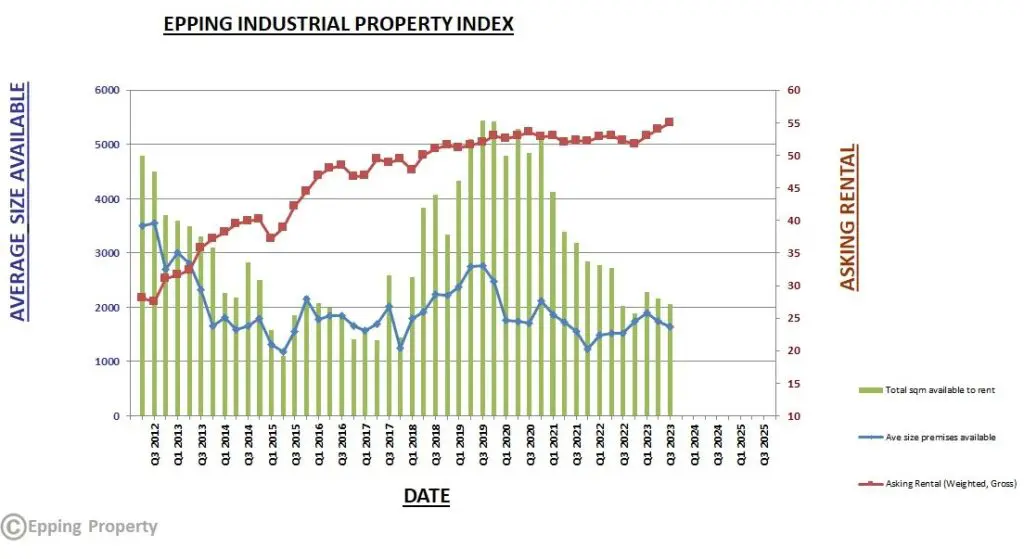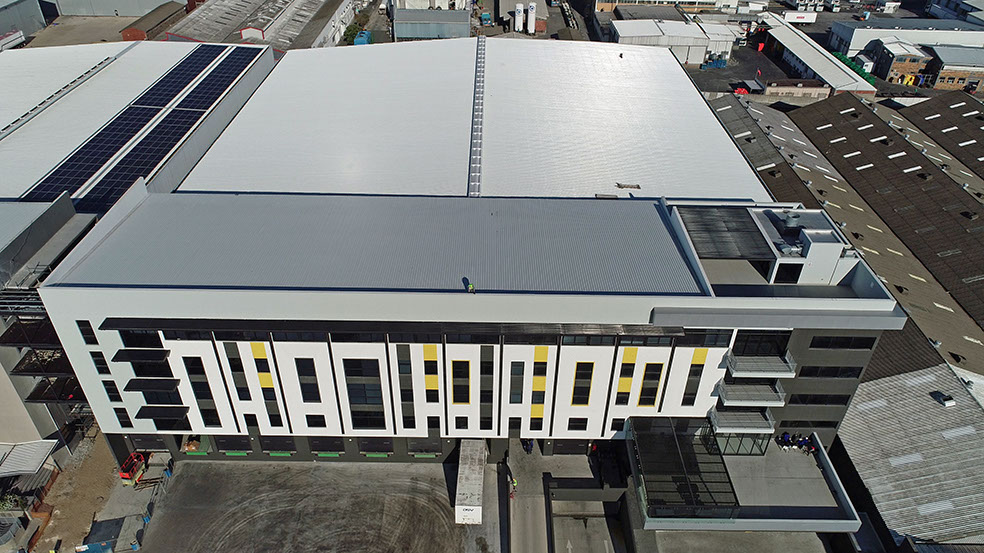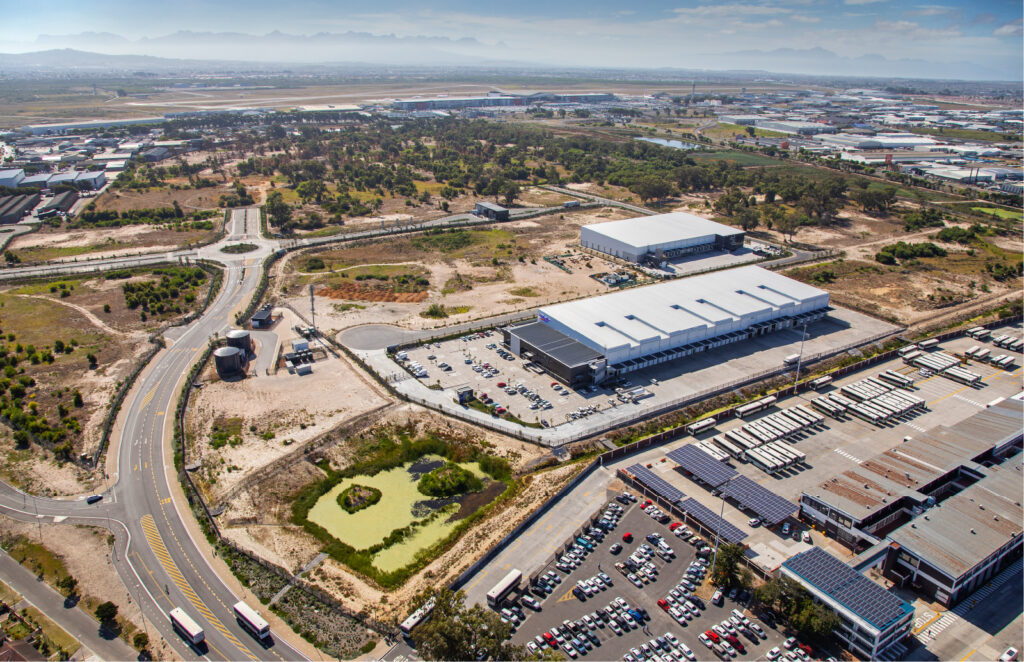There is currently a significant lack of suitable industrial premises for rent in the greater Cape Town area. Why is this, and what are the long-term implications for the industrial property market?
Firstly, the amount of industrial space for rent is at its lowest level in many years. (The statistics for Epping Industria mirror the other leading industrial areas in Cape Town)

High-level Industrial Property Trends in 2024
Changing Market Dynamics
The global property industry is expected to start rebuilding on more solid ground in 2024. Multiple factors, from a pandemic-era recovery that shifted how and where people work to more recent geopolitical uncertainties and financial market instability, are expected to be pivotal in firms’ ability to recover and build up. An example of this is the strong demand for industrial property in Cape Town.
New Consumer Behaviour in Retail
The double-digit growth in e-commerce sales will continue to drive demand for industrial property.
Smaller but better offices
There’s an acceptance in the industry that a less people will be working from formal offices. (Through technological changes, or more remote working). This has profound implications not only for industrial office users, managers, and brokers but also for the other property sectors that depend on a vibrant office market.
Environmental, Social and Governance (ESG) Considerations
Many companies aren’t yet ready to meet looming ESG regulations. Landlords and occupiers of industrial property need to be aware of, and make more effort to meet global ESG standards.
Rise of PropTech and the Internet of Things
The continual computerisation and advancement of cloud and business systems will dictate how many buildings are built in the future.
Specific South African Industrial Property Trends in 2024
Rental Growth will continue
Fueled by the shortage of suitable modern premises, mild rental growth is likely to continue into 2024.
Building costs will continue to rise
While inflation is likely to start coming down, building costs will still increase.
Shortage of industrial space in Cape Town
The shortage of industrial space to rent and for sale will continue in Cape Town.
What type of premises is the last to be let in the Industrial Property Market?
- Warehouses/ Factories with lack of open internal height.
- Yard areas with a lack of sufficient truck turning areas.
- Warehouses with no/ insufficient sprinkler system.
- Warehouses not conforming to current fire regulations.
- Warehouses/ factories with asbestos roofs and other less environmentally friendly materials.
How rent-sensitive are industrial businesses?
- Modern industrial buildings offer better efficiencies; hence, the effective R/m³ is less than in older buildings.
- Businesses clearly favour modern facilities over older facilities, despite the higher R/m² rental.

What types of industrial buildings will attract the best tenants in the future?
- Modern buildings have structural benefits such as fewer columns, allowing for greater flexibility and higher productivity of space over time.
- New, high-specification, super flat floors offer better safety standards and less wear and tear on forklifts.
- Premises that adhere to the latest fire regulations.
- Modern security systems.
- Yard areas and loading bays are designed with large modern trucks in mind.
- Modern buildings that provide for reduced energy costs of various utilities:
- Significant amounts of natural lighting. Lower lighting costs.
- Energy-efficient lighting. Lower lighting costs and more prolonged usage per low-wattage item.
- Reduced water wastage and hence less water usage.
- Reduced temperature control costs.
- Provision for solar energy installations.
- Use of modern, environmentally sensitive materials. Often these materials also last longer than their older, outdated predecessors.
- New buildings with a modern design provide an appealing, healthy environment for staff. Hence better productivity, lower staff turnover and improved quality of life.

Industrial property owners must know the requirements of better industrial businesses in the current industrial property market and ensure their industrial property portfolio adapts accordingly. If not, they will be the last to attract tenants …… at the lowest rentals.